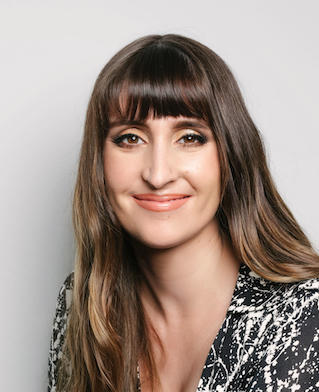In This Story
How do you prepare a hospital for a mass biological event with extreme consequences, such as the coronavirus? It’s complex and can change daily, but George Mason University alumna Saskia Popescu is the expert who can help.
The Schar School of Policy and Government assistant professor has been a go-to consultant for hospitals and the World Health Organization, helping to control infections and prepare for new outbreaks.
Popescu, who earned a PhD in biodefense from Mason in 2019, also helps educate policy makers and the public. Her expertise on coronavirus and approaches to containing it are highlighted regularly by elite media outlets including the New York Times and the Washington Post. She even serves as an infection prevention consultant for larger businesses and the City of Phoenix, Arizona, in their efforts to incorporate COVID-19 safety into the workplace.
“I’ve always been fascinated by disease transmission dynamics,” Popescu said, adding that she first became interested in epidemiology at age 9, when her mom gave her a copy of “The Hot Zone” by Richard Preston.
“We have known about [infectious disease] for hundreds of years but still struggle against it,” she said. “Learning from [each outbreak] and being able to pivot and evolve with that is a really fascinating process to me.”
And that’s just what she gets to do each day.
The infection prevention epidemiologist from Arizona said she has built COVID-19 response and preparedness programs for hospitals from scratch, and is constantly looking at case counts and analyzing data locally and internationally to ensure she’s providing the most informed recommendations possible.
“It’s extremely hard to build a robust response and preparedness program and be able to keep it agile, respond to changes in the science and data, and do it in a way that is pragmatic,” Popescu said. “Building something with the resources at hand and in a way that follows evidence-based measures is something I really love and am proud of, and getting to problem-solve and think critically in tough, chaotic situations.”
Popescu says she was drawn to Mason’s Biodefense Program because it was the only one that offered what she calls a perfect intersection of science and policy.
“If I could design a program, it would be this,” she said.
“I really love the program at Mason and am grateful to teach in it [because] it reaches across multiple specialties,” Popescu said. “[Mason] instilled that it’s never just coming at a global health security problem from one view; you have to look at all these moving pieces and put together a mosaic to really understand what’s going on.”
That includes looking at prevention strategies, as well as policy and economic implications, she says.
“Dr. Popescu has been having a major impact both locally and nationally,” said Greg Koblentz, director of Mason’s Biodefense Program. “She has a knack for explaining complex topics in a way that is easily understandable by people with no background in epidemiology.”
“Now, as an assistant professor…she has an opportunity to train the next generation of scholars and practitioners in this field,” he said. “Whether in the ICU, on Twitter, or in the classroom, Dr. Popescu exemplifies the mission of the Biodefense Program, which is to bridge the gap between science and policy to improve health security.

